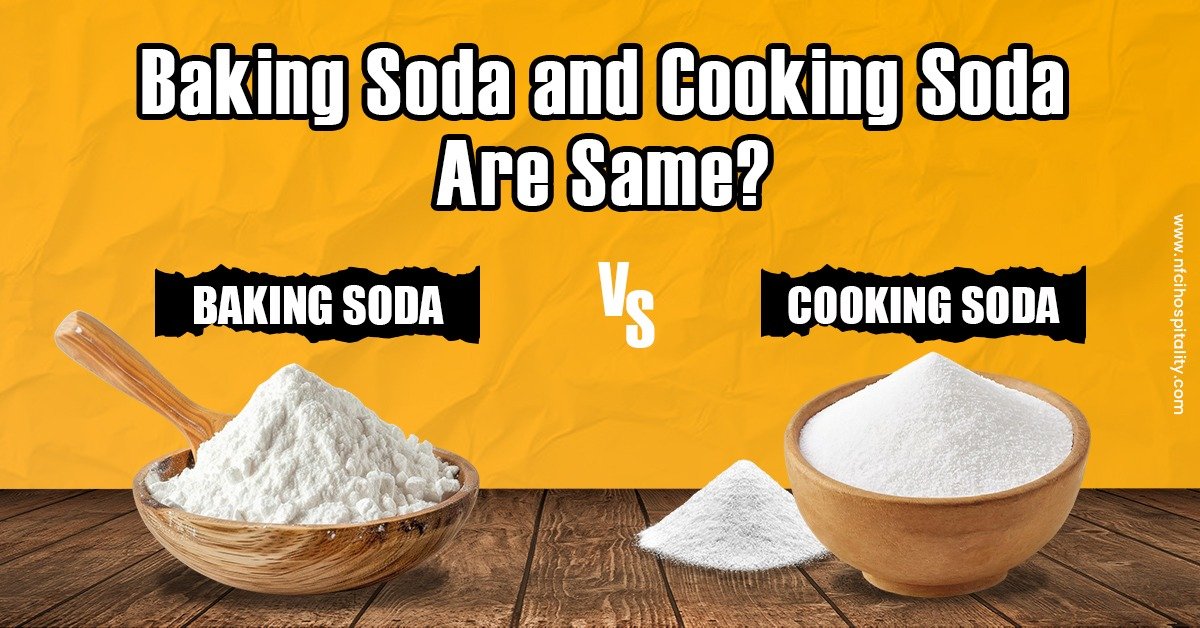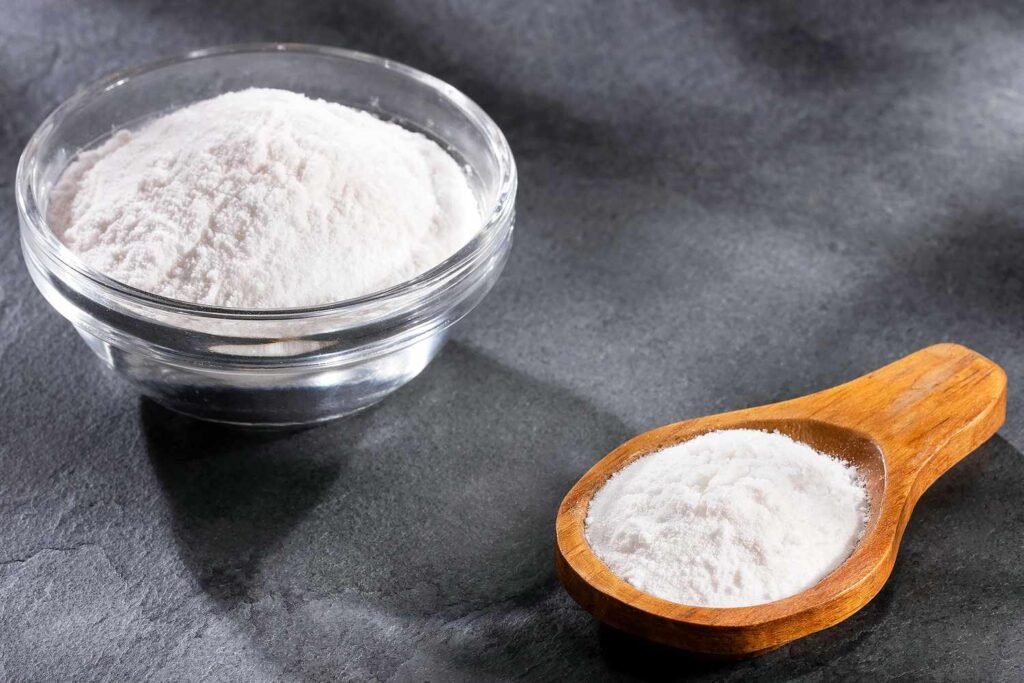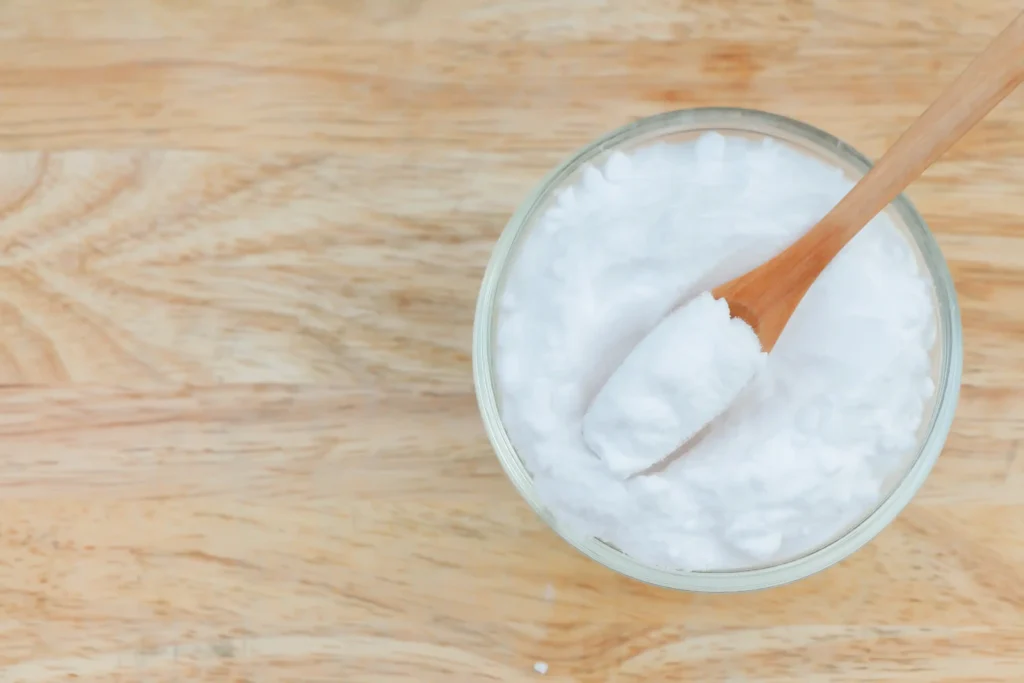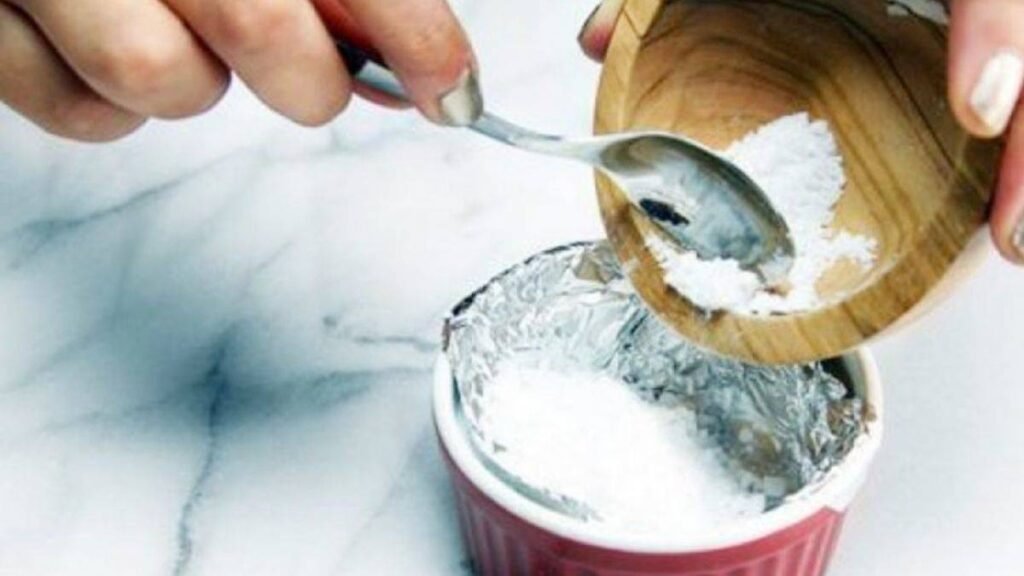
Cooking Soda Vs Baking Soda | Baking Soda and Cooking Soda Are Same?
Have you ever watched a cooking show or baked a cake? If yes, then you’ve surely come across the words baking soda and cooking soda? Many people often get confused between them. Are they the same thing? Another common question that arises is in people’s mind: where do baking powder and soda powder fit into the mix?

If you are a beginner in the kitchen or an aspiring chef, learning about these ingredients is must to stand out in the cooking and baking. In this blog, we’ll clear up the confusion between these kitchen essentials by explaining the uses for baking powder, and provide you the guidance on how and when to use them.
What is Baking Soda?
Baking Soda is a dry and powdery substance (white in color), used in cooking and baking. The chemical name of baking soda is sodium bicarbonate (NaHCO₃). It is a powerful substance in the kitchen.

How it works?
It works instantly after mixing with acid and liquid — so the batter should be baked quickly.
It is a base that requires an acidic ingredient (like lemon juice, vinegar, curd, or buttermilk) to activate. It quickly releases carbon dioxide (CO₂) in the form of bubbles, when baking soda comes into contact with an acidic ingredient. The tiny gas bubbles get caught in the dough or batter, causing it to expand during baking, making cakes, breads, and muffins light and fluffy.
Is Cooking Soda the Same as Baking Soda?
Yes, cooking soda and baking soda are the same.
The thing is, the term cooking soda is mostly pronounced in Indian households that might create confusion in people’s mind, especially for beginners in cooking. The reality is that there is no difference in the substance; only the name varies by region and context. Both refers to the same chemical compound that is sodium bicarbonate (NaHCO₃).
Also, you might have heard about the term soda powder, especially on packaging or in older recipes. It is not a different ingredient — it is simply another name for baking soda. Let’s make it easier to know:
- Baking Soda is the term commonly used in Western countries and in professional baking.
- Cooking Soda is the name more widely used in Indian kitchens and recipes and cookbooks.
- Soda Powder is another informal term that people sometimes use, but again, it points to the same ingredient.
Baking Soda = Cooking Soda = Soda Powder = Sodium Bicarbonate
It doesn’t matter what name you are listening around – baking soda, cooking soda, or soda powder, these all are same. But, be careful and let’s just not confuse any of these with baking powder, which is a completely different ingredient.
What is Baking Powder?

As we just learnt, baking soda is single compound (sodium bicarbonate), Baking Powder is a dry chemical leavening agent made from the mixture of carbonate or bicarbonate and a weak acid.
A baking powder contains three components:
- Baking Soda
- An Acidic Salt
- A Drying Agent
How Baking Powder Works?
It allows you more time to bake, and ensures a good rise even in the oven. It already contains both the acid and the base needed for the chemical reaction.
When mixing baking powder with liquid, it releases Carbon dioxide gas into a batter or dough through an acid-base reaction causing bubbles in the wet ingredients to expand and rise, and thus leavening the mixture. This results in Light, fluffy textures in cakes, muffins, pancakes, and other baked items.
There are two types of baking powder:
- Single-acting baking powder: It reacts with moisture as soon as it’s mixed in. Ensure to bake the batter immediately after mixing.
- Double-acting baking powder: This releases gas in two stages, first when mixed with liquid and second when exposed to heat (in the oven).
This provides better control and rise.
When to Use Baking Powder
It is perfect for recipes that don’t include natural acidic ingredients such as lemon juice, yogurt, vinegar, or buttermilk. Common recipes such as:
- Cakes
- Biscuits
- Breads
- Pancakes
- Sponge cakes
- Cookies
- Waffles
- Cupcakes
Baking Soda vs. Baking Powder
No doubt, they both are leavening agents but not interchangeable. Here’s how they differ:
| Feature | Baking Soda | Baking Powder |
| Acid Requirement | Yes | No |
| Speed of Reaction | Reaction is fast as it acts instantly | Reaction is slower (double acting – some reacts immediately, some in oven) |
| Taste if overused | Bitter soapy | Slightly bitter |
| Use in recipes | With acidic items (lemon, curd) | With neutral items (milk, flour) |
Common Uses for Baking Soda
It has many uses which are given below:
- A pinch of baking soda speeds up cooking of rajma or chhole.
- It used for cleaning fruits & vegetables as it helps in removing pesticide residue.
- It neutralizes odors in refrigerators.
- It is used in making Soft dhoklas & idlis as it’s key to fluffiness.
- Also, used in cleaning Ovens and Tiles as its mild abrasive texture works wonders on grease.
Common Uses for Baking Powder
Baking powder is your best buddy for leavening if your recipe doesn’t have an acidic ingredient. Here are the uses for baking powder in daily cooking:
- Baking cakes, cupcakes and muffins.
- Fluffing up batters and pakoras.
- Making pancakes or waffles rise.
- Creating crispy outer layers in fried snacks.
Can You Substitute One for the Other?
You can, but with caution. If you have no of baking powder in case, you can make your own using:
1 tsp baking powder = ¼ tsp baking soda + ½ tsp lemon juice or vinegar + ¼ tsp cornstarch
But, if you’re out of baking soda, it’s trickier, and the substitute may not work as effectively. So, it’s always recommended to use the correct one as per the recipe.
Knowing Your Ingredients is a must

It’s very important to understand the role of baking soda, cooking soda, baking powder, and soda powder in the cooking and baking. They all may look similar but their chemicals role is quite different. To know the process will improve your recipes by enhancing taste and texture of your dishes.
Build Your Cooking Career with NFCI (National Finishing and Cookery Institute)
At NFCI (National Finishing and Cookery Institute), we go beyond just ingredients. Our culinary and bakery courses teach students the why and how behind every kitchen technique. Learn professional cooking, food science, and bakery arts under the guidance of expert chefs with real-world experience.
Why Choose NFCI?
- Government-recognized diploma & certificate courses
- Practical training with state-of-the-art kitchen labs
- 100% placement support in star hotels
- Specializations in bakery, food production, and hospitality
Turn your cooking passion into a professional career.
Admissions are Open – Join NFCI Today!





